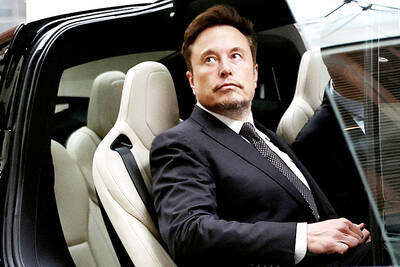As Europe struggles to decarbonize its economy and wean itself off Russian oil and gas, one of the world’s sunniest and most arid nations is pitching itself to the continent as an answer to its problems.
A delegation from sub-Saharan Africa’s driest country has been touring Europe to tout their nation as a potential powerhouse of clean energy.
They say Namibia can produce so much solar power it is soon to be self-sufficient in electricity — and, by the end of the decade, could become an exporter of so-called “green hydrogen.”
“We came to Europe saying we have this amazing sun,” said James Mnyupe, economic adviser to the Namibian presidency.
He was in Rotterdam earlier this month for the World Hydrogen Summit trade fair, and on Wednesday was making a pitch in Paris ahead of a trip to Davos.
A huge, chiefly desert country in southwestern Africa, Namibia is perfect for erecting gigantic solar farms, whose power can be used to help make hydrogen, which in turn can be used for fuel or converted into ammonia to make fertilizer.
Producing hydrogen entails splitting water into its component parts of hydrogen and oxygen, using an energy-gobbling technique called electrolysis.
Namibia says it is in a unique position to make the process clean.
Boasting a vast coastline on the South Atlantic, it would use sea water that is desalinated and then electrolyzed using clean renewables.
The hydrogen would be piped to a terminal and then exported, “to Rotterdam, Germany or South Africa,” as well as used at home, Mnyupe said.
The EU plans to produce 10 million tonnes of green hydrogen from its own resources by 2030, but it is also counting on 10 million tonnes of imports.
“We understand we cannot produce all this hydrogen in Europe domestically — it’s impossible... That’s why the prime partner is Africa,” said Jorgo Chatzimarkakis, secretary-general of the European trade association Hydrogen Europe.
The Europe-Namibia energy connection took an important step forward in November last year. Namibia selected Hyphen Hydrogen Energy, a joint venture between German renewables group Enertrag and investment vehicle Nicholas Holdings as its preferred bidder for a solar farm and green hydrogen project in Tsau Khaeb in the southwest of the country.
If all goes according to schedule, the first phase of electricity production would become operational from 2026. At full peak, the site could generate 300,000 tonnes of green hydrogen annually.
Yet the investment at Tsau Khaeb also gives an idea of the funds that Namibia needs to lure if it hopes to become a hydrogen giant.
Hyphen on its Web site puts the overall commitment at US$9.4 billion.
That figure compares with Namibia’s annual GDP of US$10.7 billion, World Bank data showed.

MAJOR BENEFICIARY: The company benefits from TSMC’s advanced packaging scarcity, given robust demand for Nvidia AI chips, analysts said ASE Technology Holding Co (ASE, 日月光投控), the world’s biggest chip packaging and testing service provider, yesterday said it is raising its equipment capital expenditure budget by 10 percent this year to expand leading-edge and advanced packing and testing capacity amid strong artificial intelligence (AI) and high-performance computing chip demand. This is on top of the 40 to 50 percent annual increase in its capital spending budget to more than the US$1.7 billion to announced in February. About half of the equipment capital expenditure would be spent on leading-edge and advanced packaging and testing technology, the company said. ASE is considered by analysts

TRANSFORMATION: Taiwan is now home to the largest Google hardware research and development center outside of the US, thanks to the nation’s economic policies President Tsai Ing-wen (蔡英文) yesterday attended an event marking the opening of Google’s second hardware research and development (R&D) office in Taiwan, which was held at New Taipei City’s Banciao District (板橋). This signals Taiwan’s transformation into the world’s largest Google hardware research and development center outside of the US, validating the nation’s economic policy in the past eight years, she said. The “five plus two” innovative industries policy, “six core strategic industries” initiative and infrastructure projects have grown the national industry and established resilient supply chains that withstood the COVID-19 pandemic, Tsai said. Taiwan has improved investment conditions of the domestic economy

Huawei Technologies Co’s (華為) latest smartphones carry a version of the advanced made-in-China processor it revealed last year, results from an independent analysis showed. This underscored the Chinese company’s ability to sustain production of the controversial chip. The Pura 70 series unveiled last week sports the Kirin 9010 processor, research firm TechInsights found during a teardown of the device. This is a newer version of the Kirin 9000s, made by Semiconductor Manufacturing International Corp (SMIC, 中芯) for the Mate 60 Pro, which had alarmed officials in Washington who thought a 7-nanometer chip was beyond China’s capabilities. Huawei has enjoyed a resurgence since

purpose: Tesla’s CEO sought to meet senior Chinese officials to discuss the rollout of its ‘full self-driving’ software in China and approval to transfer data they had collected Tesla Inc CEO Elon Musk arrived in Beijing yesterday on an unannounced visit, where he is expected to meet senior officials to discuss the rollout of "full self-driving" (FSD) software and permission to transfer data overseas, according to a person with knowledge of the matter. Chinese state media reported that he met Premier Li Qiang (李強) in Beijing, during which Li told Musk that Tesla's development in China could be regarded as a successful example of US-China economic and trade cooperation. Musk confirmed his meeting with the premier yesterday with a post on social media platform X. "Honored to meet with Premier Li